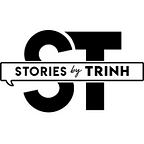3 Reasons Why You Should Cultivate a Kick-Ass Personal Brand
Branding demands commitment; commitment to continual reinvention; striking chords with people to stir their emotions; and commitment to imagination. It is easy to be cynical about such things, much harder to be successful.
- Sir Richard Branson
A personal brand is the associations people have with you. It is your trademark. Marketers utilise branding to create a reputation and identity for a company. Brands convert into sales because of emotional, functional or social connections made with a product or service.
Think Apple with simple design. Tesla with innovative vehicles. Or Dior for chic femininity.
With emerging technologies, disruption and exponential change, cultivating a strong personal brand is critical in reinvention.
Why?
1. Perception
Perception is reality. You’ve heard the saying “Perception is everything”. Having the right skills, values and mindset are the ticket to the game, but you won’t get off the bench if people don’t think you’re capable of scoring goals.
First vs Last Impressions
There are two schools of thought. Research shows first impressions are lasting impressions. Once people have made up their mind up about you it is unlikely to change. This is known as the anchoring effect.
Other research suggests that last impressions are strongly engrained into our memory as earlier recollections fade.
Whether it’s first or last impressions or every impression in between, how can you ensure you are perceived well?
- Smile and show genuine interest in others– People sniff BS miles away. Psychologist and ‘Captivate’ author Vanessa Van Edwards‘ researched what made popular high school kids, popular: they smiled and liked more people than anyone else. Similarly, Dale Carnegie depicted in ‘How to Win Friends and Influence People‘ that having a genuine interest in others assists with building relationships.
- Remain consistent — Inconsistency sends mixed signals. People like certainty and predictability. Recall the friend whose always late or the colleague that delegates challenging work. We don’t warm to people with negative affiliations and this is hard to reprogram.
- Bust assumptions — Shatter judgements about others. A strong brand requires openness. Last week I attended dinner with a prominent venture capitalist. Keeping an open mind I still had judgements and expectations. I was wrong. The dinner was pleasant and the guests down to earth. It reminded me not to judge, because if you’re thinking X or Y about others, what misconceptions do people have about you?
- Expand your resilience — “Don’t take things personally” is Don Miguel Ruiz’s fourth agreement. Do your best to present a consistent, driven you without a chip on your shoulder. You can’t control everything. Take on failures as learning opportunities. Know you can’t please everyone. Work for impact, not approval.
2. Credibility and Traction
Credibility is a denominator for success and described as “judgments made by a perceiver concerning the believability of a communicator.”
The foundation of a strong personal brand is driven by credibility because:
- Confidence exists with what you project and your ability to deliver
- Delivering allows you learn and increase opportunities
- Increased exposure expands your personal ecosystem
A principle based personal brand
Stephen Covey‘s ‘7 Habits of Highly Effective People‘ explores ‘principle centred’ action. Constructing a brand related to you inward ‘why’ rather than ‘what’ of extrinsic motivators ensures authenticity and endurance in reinventing.
What can you do to build traction?
- Prioritise difficult, highest value activities. Getting them out is rewarding and gives builds momentum. If you’re like me and struggle with monstrous tasks, break them down. Instead of #1, start your day with an easy quick win — this gets you into flow to tackle BHAG.
- Form good habits — things are less mundane if they’ve become part of your daily operating rhythm. 6am gym session aren’t challenging if done everyday.
- Leverage mentors, thought leaders, influences. Increase exposure and outreach. If you’re beginning, ask “What can I do for you?” instead of “What can you do for me?”. Most people think “Why would X want to connect with me?”. Most people are afraid to do it, so they don’t make connections.
3. Unique Value
I’ve rolled my eyes in the past hearing “You have a unique gift”. Thought leaders, influential people and many authors articulate this frequently.
Your personal brand is the value you’re able to consistently provide. It’s unique and shapes part of your identity. Think of your brand as an asset that is expansive and precious.
Nuggets for nurturing unique value for brand:
- Know your vision — 1 year, 3 years or MTP. You can only work towards something if you know what it is.
- Work to strengths — Perfect what you do well and do what speaks to you. In times of difficulty I’ve thought “What kind of person do I want to be?”. If you don’t like your situation, you have the power to change it.
- Don’t fear duplicity, rather seek personal growth — Replicability is a challenge with finding a unique value proposition. Instead of casting a wide net, focus skills value you can provide to a specific task or niché.
- Encourage and support others — Our greatest gifts aren’t just what we have but what we can give away. We rise to the level in which we are able to lift others. Seek win-win. Good karma never goes astray.
Read more posts Reintention www.reintention.com — Reinvent with Intent
